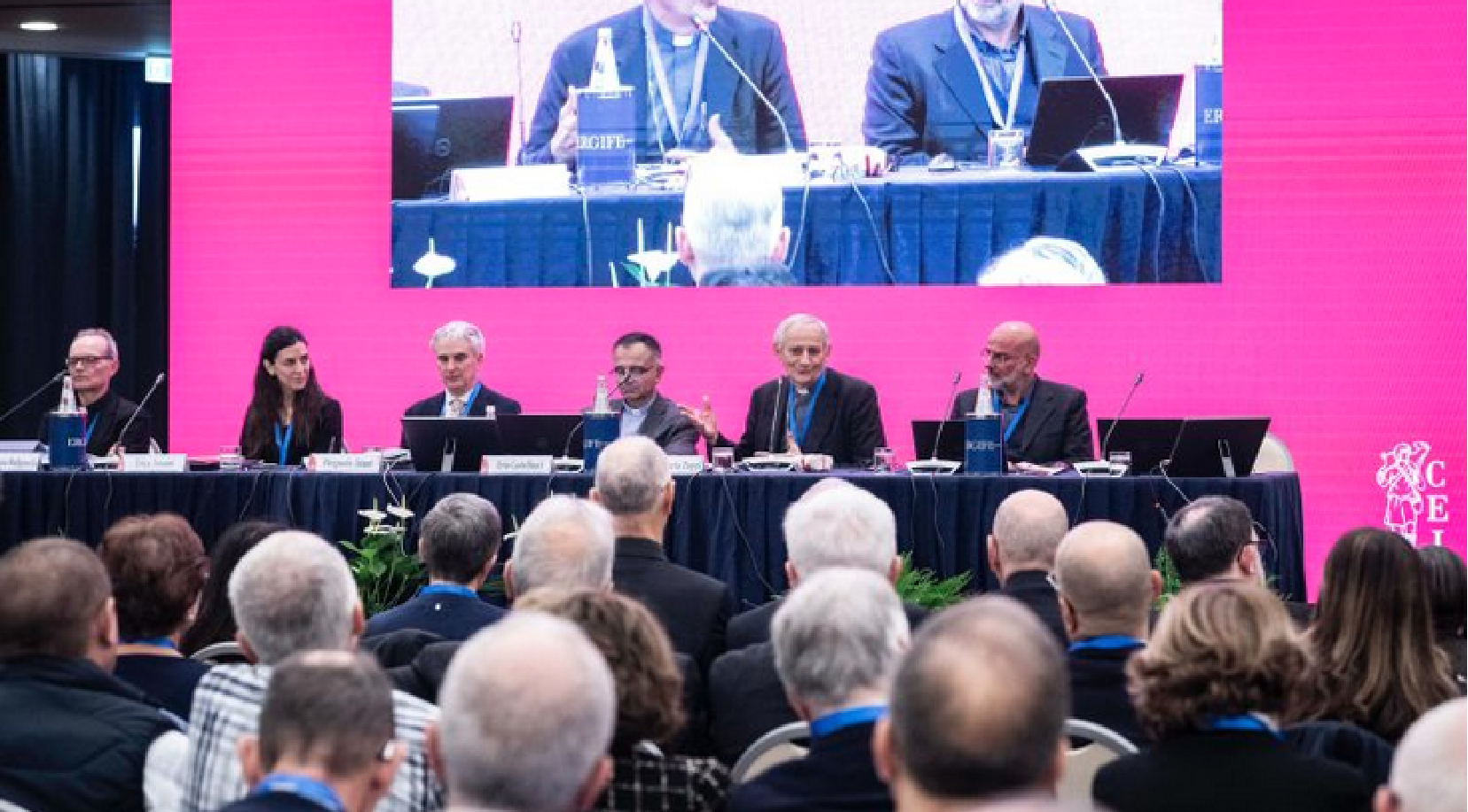Copyright zenit

(ZENIT News / Rome, 10.28.2025).- In a move that may shape not only the future of the Italian Church but also ripple across the global Catholic landscape, the bishops of Italy have approved the long-awaited synthesis document of their national synodal process — a four-year journey marked by tension, dialogue, and a renewed call to unity. The text, titled Leaven of Peace and Hope, was adopted on October 25 by an overwhelming majority of 781 votes in favor out of 809 cast. The result brought to a close the third and final assembly of Italy’s Cammino Sinodale, a process that began in 2021 in response to Pope Francis’ invitation for every national Church to rediscover synodality — the art of walking together. The Italian Church’s path, however, has been particularly significant: it unfolds in the same ecclesial soil that nourishes the papacy itself, and its conclusions inevitably influence Rome’s own horizon. Cardinal Matteo Zuppi, president of the Italian Bishops’ Conference (CEI), described the approval as “a passage from words to responsibility.” Speaking at the close of the assembly, he urged pastors “to take everything up, identify priorities, and engage both old and new energies so that these words may become flesh.” For Zuppi — whose pastoral style often blends realism and mercy — the vote signals a maturity of collegiality: “Synodality and collegiality must now become our way of being Church.” The document, which will serve as a reference for the bishops’ general assembly in November 2025, is organized in three sections: the renewal of ecclesial and missionary life; synodal and missionary formation for all the baptized; and shared responsibility in leadership and mission. These are not theoretical divisions, the bishops insist, but interconnected realities meant to help Italy’s local churches move from “a pastoral model of categories” toward a “missionary style capable of reading a world in transformation.” The process that led to this point has been neither quiet nor linear. Last April, the synodal path nearly derailed when progressive members objected that an earlier draft did not address adequately the pastoral care of LGBT persons, the role of women, or the wounds of clerical abuse. The vote was postponed, and a period of revision followed, marked by deep listening and compromise — though without abandoning fidelity to the Gospel, as the organizers stressed. The result is a text that, while far from revolutionary, represents a significant evolution in tone and pastoral priorities. It calls on local churches “to overcome discriminatory attitudes sometimes present in ecclesial and social environments” and to “promote the recognition and support of homosexual and transgender persons, as well as their parents, who already belong to the Christian community.” Without explicitly changing Church teaching on marriage or ordination, the document nonetheless asks pastors to create “paths of accompaniment, discernment, and integration into ordinary pastoral life for those who, because of their stable affective and family situations outside the sacrament of marriage — second unions, civil unions, cohabitation — find themselves on the margins of ecclesial and sacramental life.” Other approved proposals include encouraging lay participation in parish leadership through ministerial teams of deacons, laypeople, and religious, and urging seminaries to reform priestly formation in a synodal key. It also supports further theological research into the question of the female diaconate — a topic under study by the Holy See — and invites dioceses to reflect on the role of women in teaching and governance. Equally notable is the attention given to transparency and social ethics. The assembly approved measures encouraging dioceses to divest from financial institutions linked to the arms trade, to promote nuclear disarmament, and to strengthen systems of accountability in Church governance. Monsignor Erio Castellucci, president of the national synodal committee and one of the leading figures in the process, described the past four years as “beautiful years — beautiful not because they were easy, but because beauty, for Christians, means gift, effort, and sacrifice.” Speaking to the assembly, he emphasized that the Synod had been “above all an experience of people and relationships, not merely of texts and structures.” With more than 50,000 small groups meeting throughout the country, the process became one of the largest exercises in ecclesial consultation in Italy’s modern history. The final vote reflects broad unity, though not without tension. While most proposals passed with over 90 percent approval, some — particularly those concerning women’s participation and shared governance — received around 75 to 80 percent support, signaling ongoing debate. Yet even in dissent, observers noted, the tone was markedly different from past ideological clashes. Father Sabino Chialà, prior of the ecumenical community of Bose, opened the assembly with a meditation on the spirituality of discernment: “True steps transform us. One cannot walk and remain the same.” His words framed the week’s discussions as more than policy-making — a collective act of conversion. Pope Leo XIV, who met the delegates earlier this year, had urged them “not to defend yourselves from the provocations of the Spirit. Let synodality become your mindset.” The assembly’s final message to the Pope echoed that exhortation, pledging to embody it as a living commitment. For all the attention given to its sociological aspects — inclusion, participation, transparency — the Cammino Sinodale has been, at heart, a theological exercise in communion. Its new document refrains from doctrinal declarations and focuses instead on how the Church can walk with wounded humanity while remaining faithful to Christ. Whether this Italian experience becomes a model for other national Churches remains to be seen. Yet it already offers a snapshot of a Church seeking equilibrium: between tradition and renewal, conviction and compassion, structure and Spirit. As one participant summed it up: “The text is not perfect. But it breathes with the faith of our communities. It’s not a destination — it’s a way forward.” Thank you for reading our content. If you would like to receive ZENIT’s daily e-mail news, you can subscribe for free through this link.



